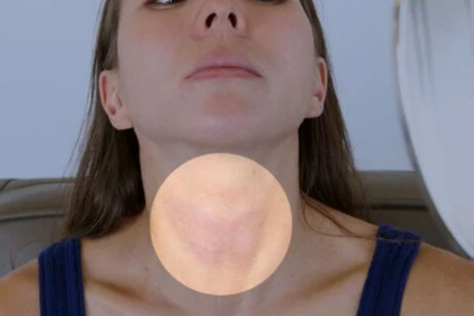Your thyroid is a vital gland in your body that regulates everything around it. It’s usually located in your neck and is key to several of your body’s functions. If your thyroid fails and releases less or too much thyroid hormone abruptly, many health issues will arise.
Thyroid symptoms are similar to those of other diseases and can go undetected for a long time. According to the American Thyroid Association, symptoms differ among people. In some people, symptoms can arise early, in others gradually. Below, we explore how to differentiate between thyroid and other health problems in women in Winston Salem, NC.
What is the thyroid gland?
The thyroid is a tiny, butterfly-looking gland located on your windpipe. The thyroid functions to excrete hormones that aid your body in regulating and utilizing the energy produced. Thyroid hormones aid in controlling your body’s functions, such as heartbeats and the functioning of your digestive system and pituitary gland. Less thyroid hormone production in your body will slow automatic natural processes, leading to digestive and kidney diseases.
Female Thyroid Symptoms and Treatment
Thyroid problems affect people differently, which vary and are challenging to detect. However, leaving a thyroid problem untreated can cause severe issues for your body parts, especially the heart. In addition, having thyroid symptoms can be very uncomfortable. Some thyroid problems in women include:
Changes in weight
Hypothyroidism will lower many of your body’s functions, such as metabolism. For instance, it is like your body being told to put everything on hold, making you gain less weight.
In addition, if your body generates too many thyroid hormone levels, also referred to as hyperthyroidism, it will increase your body’s functions, making you lose a lot of weight. However, most women suffering from hyperthyroidism will see losing weight as an achievement, but they need medical attention. An increase in hormone production will affect your heart.
Abnormal blood pressure
Your thyroid hormone is always in communication with the heart and influences how quickly or slowly your heart beats. When you have low thyroid hormone, your heart rate will be lower and will impact organs in your body and their functioning.
Furthermore, your heart rate will increase with high thyroid hormones, which can cause severe problems such as heart failure.
Sudden bathroom changes
When you experience or have symptoms of hypothyroidism, your gut will be affected, and its normal function will be stopped. Unlike before, you will start having fewer visits to the washroom or become constipated most of the time. In addition, you might also notice your stools are not solid.
Increased fatigue
If you have hypothyroidism, your energy levels and control will become very low and less effective. For instance, a full day doing a specific task will leave you with too much exhaustion; unlike before, your regular workout routine will suddenly become too much to manage. This type of fatigue can lead your weight to increase rapidly.
Mood changes
Hypothyroidism, also called underactive thyroid, will impact your normal brain functions, severely influencing your moods. Females often go through depression, making it hard to detect which thyroid may be involved.
Moreover, if you are affected by hyperthyroidism, your mood will be influenced differently, such as constant anxiousness and irritation. However, both hypothyroidism and hyperthyroidism will mentally and emotionally drain you, and it would help if you get medical attention, for example, therapy.
Period problems
‘Does your period out of the blue become thick than normal?’ That could be a symptom of hypothyroidism. The thyroid usually influences your period cycle, so you will have changes from your normal period cycle when a problem occurs.
However, hyperthyroidism will have the opposite effect; your period will become lighter than usual, and it can disappear unexpectedly.
Sudden skin and hair changes
Your skin and hair will become severely dry when you have thyroid disease. In addition, even if you apply moisturizer, you will notice your hair becoming weak and falling off quickly. Both hyperthyroidism and hypothyroidism will cause your hair to become thin.
Constant weak and aching muscles
Thyroid disorders, hyperthyroidism, and hypothyroidism, will make your muscles weak and stiff with constant aches. This will make you feel lazy and generally inactive due to the fatigue caused.
Thinning eyebrows
Most females become shocked when they learn losing part of their eyebrows is one of the signs of a thyroid condition that causes hair loss. When you start noticing your eyebrows are getting scattered on edge, that signals you are unwell and should instantly seek medical attention.
How is hypothyroidism treated?
Hypothyroidism underactive thyroid is usually treated by reinstating hormones your thyroid cannot make. Your doctor will prescribe a thyroid medication (usually a natural desiccated thyroid medication). It is also available in liquid and in gel capsules to assist people with digestive issues in absorbing the thyroid hormone quickly. In addition, the medicine is always recommended to be taken early in the morning before eating anything.
How is hyperthyroidism treated?
Hyperthyroidism overactive thyroid is usually treated by trying to lower your thyroid levels. This typically requires the assistance of an Endocrinologist.
Looking for Thyroid Healthcare Provider in Winston Salem, NC? Contact us today
The thyroid is one of the essential organs in your body that impacts many functions. Symptoms of thyroid problems can be similar to other diseases and can be hard to observe. However, when you leave, untreated thyroid problems can cause many issues for your weight and overall sense of well-being.
At Robinhood Integrative Health, we have a comprehensive team of health experts who can put together a plan for you. We have years of experience dealing with thyroid problems (particularly hypothyroidism) and are here to help you with your health journey. If interested in an appointment please fill out a new patient form on the website.



